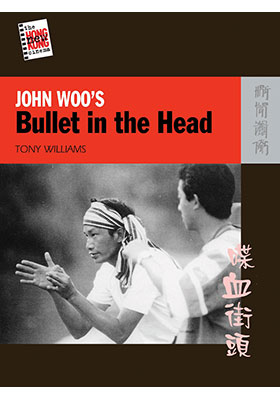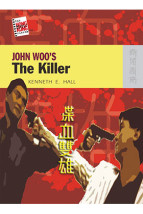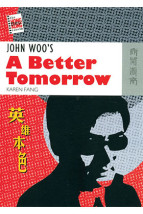John Woo’s Bullet in the Head
(吳宇森的《喋血街頭》)
ISBN : 978-962-209-968-5
April 2009
144 pages, 5.5″ x 7.5″
- HK$195.00
Also Available on
Though underappreciated in contemporary film criticism, Bullet in the Head is a landmark in John Woo’s career as a film director. Featuring strong early work by Hong Kong stars such as Tony Leung Chiu-Wai and Simon Yam, the film functions both as modern Jacobean revenge tragedy and as an allegory of fears surrounding the Tiananmen Square incident for Hong Kong residents facing reunification with China. Detailing the circumstances surrounding production and the role of leading stars, Tony Williams argues for the film’s central importance as a major triumph of dynamic Asian cinema and assesses its significance both for Hong Kong cinema and Woo’s later career.
“The book makes a compelling case for examining Bullet in the Head as the high point of John Woo’s career in Hong Kong. Williams’s knowledge of Hong Kong cinema is encyclopedic, and the book effectively highlights the unique place of this ‘apocalyptic melodrama’ within that history, moving effortlessly between textual analysis and political context. This takes the existing literature on John Woo’s ‘heroic bloodshed’ a step further and situates Woo’s oeuvre within a more complex, global film culture in which male melodrama and eschatology merge to open up new possibilities for reading popular Hong Kong film within a postmodern context.” —Gina Marchetti, University of Hong Kong
“This is an excellent study of John Woo’s Bullet in the Head that will appeal to both students of Hong Kong and other popular Asian cinemas as well as academics working in the field. Williams persuasively locates Woo’s most personal and gruelling film within Hong Kong cinema during the 80s and 90s, and provides a detailed and stimulating scene-by-scene analysis. The author is right to argue that Bullet has been comparatively neglected in studies of Woo, and he reminds us of what a rich and powerful film it is.” —Leon Hunt, Brunel University




